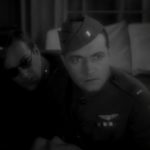 |
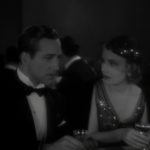 |
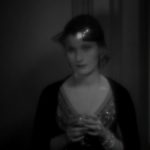 |
| Cary Lockwood Richard Barthelmess |
Shep Lambert David Manners |
Nikki Helen Chandler |
| Released by Warner Bros. | Directed by William Dieterle Run time: 76 minutes |
||
Proof That It’s a Pre-Code Film
- Nikki is, “just an old hussy we found scattered around.”
- A friend named Frink is “a member of the wandering hands society, and he has a groping good time!”
- There’s a gag where one of our resolute drunks thinks he’s getting peed on.
- Death, murder, and all that rigamarole.
The Last Flight: Blitzed
“What are you gonna do now, Shep?”
“Get tight.”
“And then what?”
“STAY tight.”
I was in my kitchen this evening, juggling mashed potatoes, roast carrots and pan-seared steak when my daughter started screaming and my wife began to curse her phone. Oddly, that was that moment where The Last Flight finally clicked for me, moving beyond joshing admiration to something familiar– that urge for freedom, to have no worries and fewer concerns.
Time for some tough truth: I’ve never read Hemingway outside of the school-mandated Old Man and the Sea, and that was enough. But the Lost Generation does fascinate me. The bitter victory of World War I is often paved over in American school curriculums, and it’s an interesting moment that could have been a major turning point for our nation’s destiny– to turn our backs on the world or to embrace the infinite possibilities of global cooperation.
Unsurprisingly, we chose getting hammered– so much as we could at the time. That brings us to The Last Flight, set in Paris with a cadre of drunk American veterans desperate to forget the fact that they are somehow considered the lucky ones. After opening with a dizzying sequence depicting the brutal dog fights of the war, with Cary (Barthelmess) escaping a wreck mangled but alive, we’re taken to the VA hospital as the minutes tick down to the armistice. His closest friend is the airy Shep (Manners), who developed a facial tic from an injury which causes his eye to twitch– unless he’s drunk. That seems like a good start.
It’s 1919 in Paris, and the two men wear their evening suits out every night, pursuing their favorite drinking spots, favorite drinks, favorite bartenders, and favorite drinking buddies. These include Bill (Johnny Mack Brown), who is all brawn and not much brain, and shell shocked Francis (Elliott Nugent), who needs an alarm to remind him to perform normal bodily functions. Also lurking around is Frink (Walter Byron), a non-degenerate with a real job, who is just waiting for something valuable to turn up that he can steal.
That appears in the form of dizzy heiress Nikki (Chandler), who often toes the line between space cadet and dream girl. (Asked to characterize her, it’s noted that, “she’s the kind that sits down on phonograph records.”) She lives a life of disconnected ease mostly characterized by the number of shoes she has and the family of nameless turtles she’s raising in her hotel room’s tub. She winds up as the group’s mascot, and even begins to fall in love with the romantic, but damaged, Cary.
But this isn’t a movie– or an era– for optimism. The characters are wry and flippant, the typical Warner Bros. disaffected tone mixed with a special blend of knowing nihilism soaked in evening suits and cocktails. The first 40 minutes of the film, in between the blood of the battlefield and the change of locales from Paris to Lisbon, are almost aimless. While Frink is always hovering, waiting for the moment to shatter the group for his own gratification, the plot is nearly non-existent. It’s drinking and laughing, wit and half-wit freely intermixed with a feeling that it all means more than it does. Probably because nothing else matters anyway.
The film is still rough. William Dietrle (Jewel Robbery, Female), making his first English language film, is a bit graceless in parts, and Chandler’s vacant eyes make her character almost too much of a mystery. Her past is left a question mark, which gives her just as much weight as the veterans– she’s damaged, but we don’t know what did it to her. Unfortunately, Chandler is a bit too loose and flighty, making it difficult to determine when she’s drunk, or sober, or if it’s just all bats in the belfry. (ha.) One scene in particular involving the names of her turtles is extremely messy, further contributing to the film’s clumsiness.
Barthelmess struggles a bit too– he’s always had a great ability to project intensity, a churning internal whirlwind that produced some of the most anguished and beautiful performances of the era. But playing witty and charming– William Powell with PTSD– is a little off for him. He does tortured well, romantic not so much. The rest of the cast is fine, with David Manners, often dragged by Universal fanboys for his performance in Dracula, playing things with a light touch under a bitter sheen.
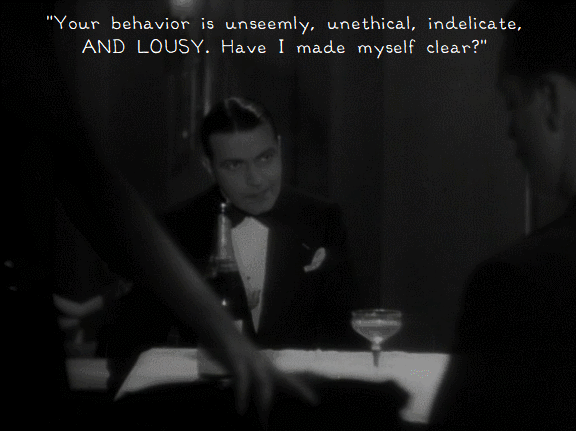 One thing I really wanted to touch on is Frink’s role in the proceedings, especially post-scumbag Harvey Weinstein’s fall from grace. Frink is so clearly a sexual predator. The other men see right through him, and Nikki is creeped out by the man’s unwarranted advances. Why not just boot him from the group? The main problem here seems to be the effort it would take to tell Frink to fuck off. Their supreme avoidance of sobriety is matched by their desire to avoid conflict. They’ve fought their war, and Frink preys upon their drunken indifference to keep his eyes on Nikki. Their inability to confront problems eventually destroys them; that doesn’t mean they learn anything from it, either.
One thing I really wanted to touch on is Frink’s role in the proceedings, especially post-scumbag Harvey Weinstein’s fall from grace. Frink is so clearly a sexual predator. The other men see right through him, and Nikki is creeped out by the man’s unwarranted advances. Why not just boot him from the group? The main problem here seems to be the effort it would take to tell Frink to fuck off. Their supreme avoidance of sobriety is matched by their desire to avoid conflict. They’ve fought their war, and Frink preys upon their drunken indifference to keep his eyes on Nikki. Their inability to confront problems eventually destroys them; that doesn’t mean they learn anything from it, either.
The film’s ending reinforces this, leaving Nikki and Cary as vagabonds forever, their buddies gone but the booze still free and available. It’s romantic but downbeat; they survive on their own terms. Had Frink been dealt with earlier in the film, pain could have been avoided. But that’s the tragedy of Cary and Shep, who saw their lives as forfeit after they crashed. Living on as ghosts, not even love can save them.
The Last Flight may be flawed, but it never backs down from the gaping pessimism that infected so many survivors of the Great War. It’s funny and irreverent, but it shows the extent to which people will go to mask their pain and embrace futility. The movie is insidious in the way it romanticizes this in part– God, I want to put on a tux and down a drink right now– but it never lets anyone off the hook, either.
That makes the film something of a rarity, one of a handful of talkies that showed what war can do to people without a hint of condescension. With a century intervening between the film’s setting and now, it’s amazing that we can still see these exact attitudes played out among the veterans of already-forgotten wars still raging. The Last Flight’s nihilism seems eternal, and, sadly, more justified than ever.
Screencap Gallery
Click to enlarge and browse. Please feel free to reuse with credit!
Other Reviews, Trivia, and Links
- Jeremy Arnold at TCMDB is upbeat on this one, talking about the film’s lack of success at the box office (“As it turned out, the film got great reviews but was a commercial disappointment.”) and its director:
This was Dieterle’s first English-language film, but surely his experience as an actor and director for stage and screen in Germany — dating back to 1920 — had him well-prepared. Dieterle had actually been in Hollywood for a couple of years before The Last Flight, directing German-language versions of Warner Brothers films. (It was common practice in the early days of talkies for foreign-language versions of American films to be shot side by side with their counterparts.) As the 1930s wore on, Dieterle became one of Warner Brothers’ top house directors.
- Cliff at Immortal Ephemera offers effusive praise for the film:
Originally slated to be directed by William Wellman (Variety), who had directed Wings, the honors on The Last Flight went instead to William Dieterle, in what would be his first English language film in Hollywood. Dieterle does a wonderful job of keeping our attention squarely focused upon Nikki and her war birds, only occasionally pausing to let anybody else interrupt a scene. Despite the fact that the action rarely consists of anything more than five or six people drinking and talking together, The Last Flight never feels stagey and usually even succeeds in making us believe in its European locales. The 76-minute run time feels just right and, to writer Saunders’s credit, even when nothing much is happening there’s always a bit of suspense in wondering what bit of nonsense will roll out of the characters’ mouths next. Just a guess, but possibly it helped having a director whose native language wasn’t English. I can half imagine Wellman replacing some of of the more impenetrable gems with brawnier bits of American slang, especially when the fellows were speaking.
- Erich at Acidemic chats about the quartet of writer John Monk Saunders’ early sound films, including Dawn Patrol and Ace of Aces and points out their uniqueness in the American conscious:
It’s hard to imagine there was ever such a time now, a time when anti-war/pacifist isolationism was a viable Hollywood stance. But the conscience-stricken flying ace films of Saunders’ took advantage of the pre-code “amorality” to provide more than up-to-the-minute reflections of the forgotten man’s deep disillusionment over coming home to the Depression. They also eyeballed the sketchy border between war as a boy’s holiday from the Ten Commandments and the post-war (or even post-battle) isolationist post-traumatic stress. Looking back from our 21st century high, wherein hindsight has proven our involvement in WWII was a worthwhile endeavor (to liberate the camps if nothing else), Saunders’ 1930-33 films haunt the landscape like a dark shadow. No wonder they were seldom re-released and are now available only on Warner’s Archive or Amazon downloads. […]
Luckily for us there’s a weird poetry in the chemistry between Chandler and Manners, who seem even more ESP-whisp-thereal than they did in the same year’s DRACULA, no easy feat. As Shep, Barthelmess’s drinking buddy, bosom pal and ex-gunner, Manners’ otherworldly feyness finds a great natural outlet–we believe he’s forgotten what month it is–and when he dies shot in a cab and proclaims “in a way this is may be the best thing that ever happened to me,” we actually believe him.
And it’s understandable that both he and Nikki would be so drawn to the quiet strength of Barthelmess’ densely rooted pilot; they seem to float when standing still, their eyes following wisps around the room only the two of them can see, making them like a taller, drunker version of Alan Ladd and Veronica Lake, but with their invisible strings fastened to Barthelmess’s anchor, they don’t need to worry about floating away.
- Richard Harland Smith at Streamline (formerly Movie Morlocks) runs down the tragic life of Helen Chandler:
Though contemporary critics can be unkind to Chandler’s work in [Dracula], branding her “cold” and “bloodless,” the actress evinces a walking dream-like state that ignores the novel’s construction of a New Woman encountering the Old World to speak to a more Gothic sensibility. Though obviously tainted by the broad playing of that time, Chandler’s Mina feels experimental, almost avant garde. But perhaps she was just playing herself. […]
When The New York Times reported in January of 1940 that Helen Chandler had been committed to a sanitarium, she was all but forgotten. While living with friends in Hollywood, she was severely burned and scarred in 1950 after having fallen asleep while smoking in bed. She lived another 15 years, dying of heart failure in 1965, penniless and alone. There was no obituary. Her body was cremated in a Venice, California mortuary and to this day her ashes have never been claimed.
- John McElwee at Greenbriar Picture Shows has a great rundown of how the picture got made– Saunders’ book selling well, Richard Barthelmess’ clout, and Ernest Hemmingway not suing, and he talks about the film’s after-life to a good extent.
Barthelmess is precisely right casting for The Last Flight, his own renown headed for eclipse, but maintaining at all times a tortured integrity that serves perfectly his character here. WB brass called The Last Flight uncommercial, as it focused on flyers’ lives after they were done flying, a dismaying contrast to actionful predecessors, which by 1931 were themselves losing boxoffice altitude. The Last Flight’s minimal combat stuff dominated the trailer, making disappointment keener when the feature disposed of said highlights in its opening reel. This was drama of endless talk among the willfully dissipated, not glories won in the skies. It’s a picture better suited to us now than patrons then, being frustrating to their expectations, but congenial to our own. Modern viewers tend to like The Last Flight. It took me watching twice to catch the wave. Now it’s one of my favorite Warner precodes. Some critics then admired the experiment, but a larger public balked.
Awards, Accolades & Availability
More Pre-Code to Explore

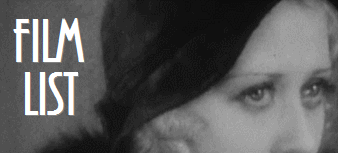
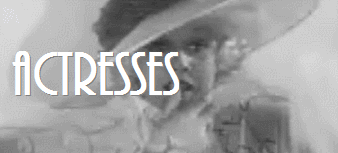
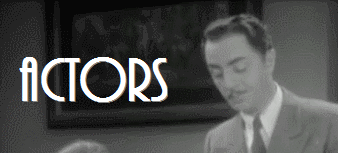
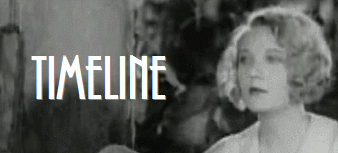
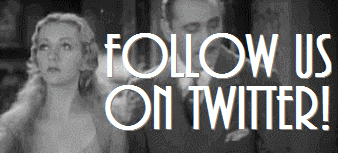

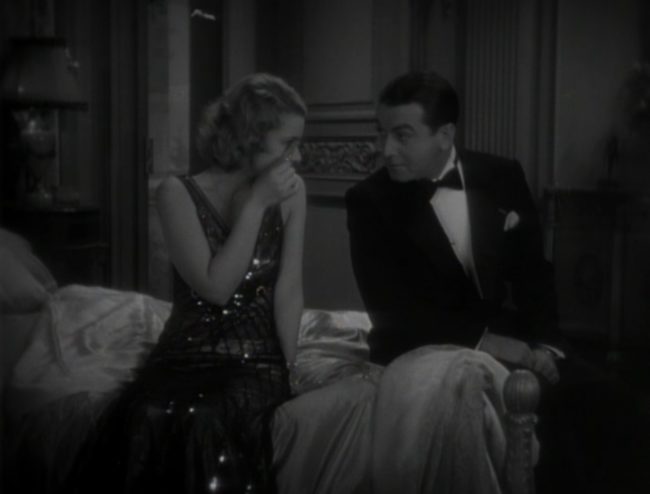
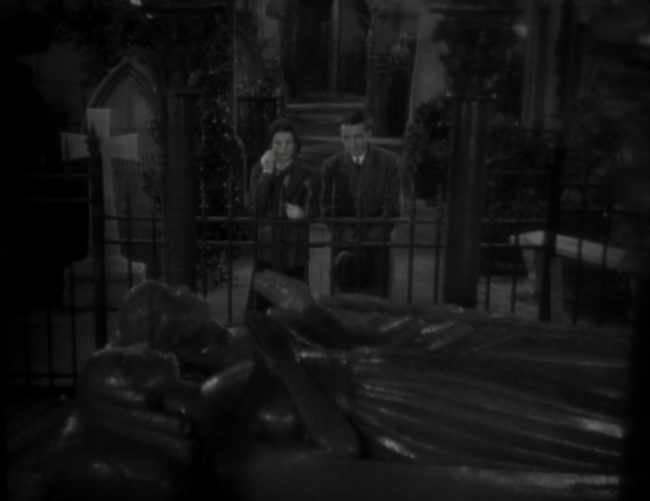
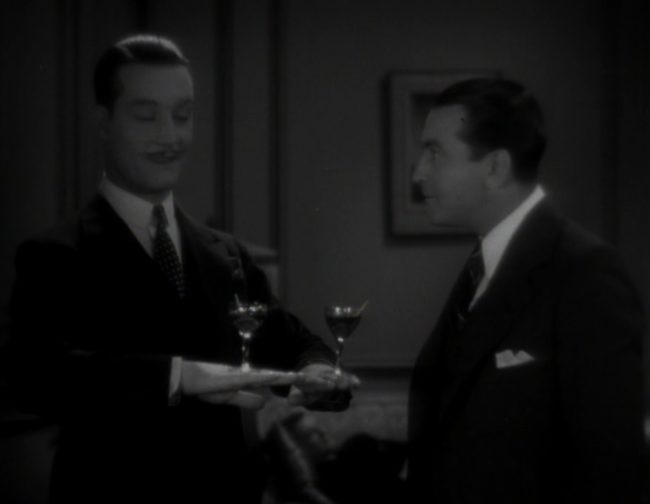
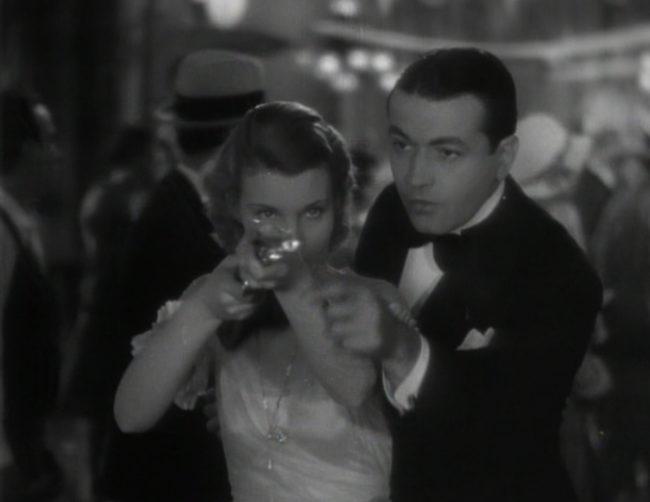
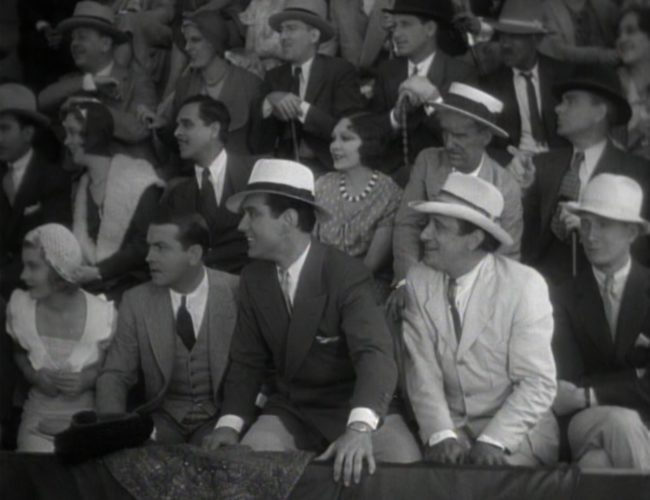



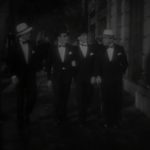

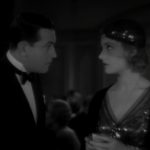
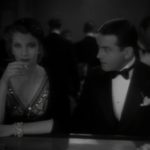
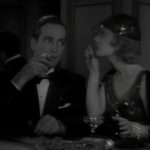
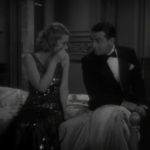
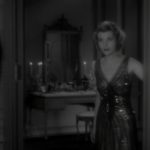
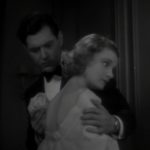

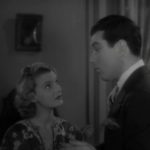
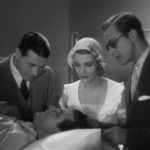
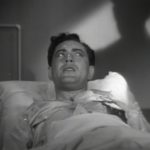
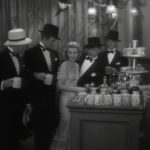
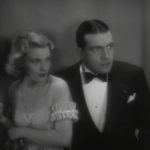

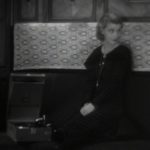
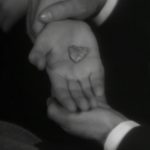



5 Comments
Mjm · November 6, 2017 at 5:57 am
Fun fact:
Around the same time this movie came out, a stage version was playing simultaneously on Broadway called ‘Nikki’ with Fay Wray in the title role and Cary Grant (then still credited under his real name Archie Leach) as Cary Lockwood.
Terence · November 6, 2017 at 6:05 am
I like this one, too, Danny. One thing I notice is that the ensemble is a very odd mix of acting styles. Barthelmess with his tortured expressions is basically a silent film actor, Manner is from the stage, and Johnny Mack Brown, football player turned cowboy actor (and not a very good one though Dieterle gets all he can out of him.) Interestingly, this was conceived initially as a sequel to Hawks’ The Dawn Patrol (a Barthelmess vehicle and Saunders script) which dealt with RAF pilots, not Americans. I thought I read somewhere that Hawks was slated to direct it and then it changed into something closer to The Sun Also Rises. Interesting tidbit from wiki: “Shortly after the film’s release, Cary Grant appeared opposite Fay Wray and Douglass Montgomery on Broadway, starting on September 29, 1931 on a musical adaptation entitled Nikki (1937). Grant was still billed as “Archie Leach” but adopted his first name from the character, “Cary Lockwood”, whom he played on stage and the one Barthelmess had portrayed in the film version.” Saunders was Fay Wray’s husband.
arlissarchives · November 6, 2017 at 8:01 am
THE LAST FLIGHT is an odd film to produce during the early years of the Depression. A good film on a subject given little attention – WWI era PTSD – I’m not surprised that it was too much of a downer for the public. It’s still a downer but quite relevant to the plight of many veterans today. 1931 was the breakout year for both David Manners and Helen Chandler and they made, together and separately, about five films each with leading roles in all. I assume the exhibitors’ reports were not good so by 1932 both are playing second leads. Manners did have a starring role in CROONER in ’32 but for whatever reason it only sealed his fate. Of the main players, only Johnny Mack Brown seemed to land on his feet career-wise, albeit in B westerns. TLF is a very good film that deserves to be better known. BTW, I have the Photoplay Edition of the novel. Finally, I didn’t notice this bit of trivia being mentioned: Cary Grant played the Barthelmess role on the stage and liked the character’s first name so much he decided to use it as his stage name.
Ben · November 6, 2017 at 9:00 am
It’s been a few years since I saw this. I remember being amazed at how powerful and unexpected it was,although I can’t recall specifically what it was about the film that made it so. The dark wit and gallows humor seemed so modern for a film from this time. Barthelmess is a wonder. He *is* a silent actor, at odds somehow with talkies. That’s what makes his performances so deceptively strong. His rhythms are different from the performers around him.
By the way, to round out the Cary Grant trivia from above, Grant wanted to change his name not just to Cary, but to “Cary Lockwood”. But there was already a working actor at Paramount named Lockwood. So the studio produced a list of names they kept handy for these occasions, and Cary picked Grant. Ta-da.
Linda Sandahl · November 6, 2017 at 4:40 pm
This unique movie is really one of the gems of the pre-code era. It’s one of the few — the very few — films that actually captures the real feeling of the post WW1 experience. The war was such a catastrophe that the mores, traditions, and conventions of previous generations seemed false, empty, and dead, and a sort of counter-culture arose to replace them for a few years, until the rise of Nazism made it clear that war would indeed come again. The heroes of this movie — including Nikki, whose past was clearly as traumatic in its way as the guys — have nothing to believe in or trust but each other.There are some amazing details in the script that only hint at the horrors these people have lived through — Shep’s tic is not caused by his injury, but by lice under the bandages in the field hospital, for example. No wonder veterans of this war didn’t want to talk about it.
I find Cary’s desperate efforts to numb himself with partying and alcohol very convincing. All he wants is nothingness. After meeting Nikki, he packs up and tries to flee to get away from her, because clearly falling in love with her is going to force him to feel again. He’s strong enough to stand it; the others aren’t. They are slightly delayed casualties of war.
I’ve never found Helen Chandler cold or brittle; I love Nikki’s clumsiness and gaucherie. She has a fantastic talent for saying the wrong thing. Chandler was very good with Barthelmess, and there are some pretty hot moments between them in Midnight Alibi, for example (making out in the garden).
This movie is part 2 of a sort of unofficial trilogy, along with The Dawn Patrol and Heroes for Sale.
Comments are closed.